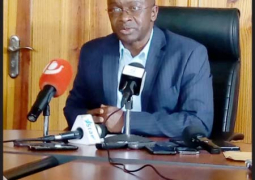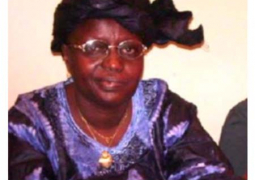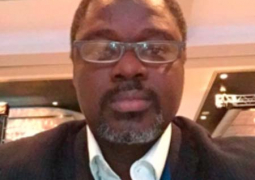(Thursday 24th October 2019 Issue)
Greenpeace
Africa, an international organisation focusing on environmental preservation,
over the week held a discussion with Kombo South communities on the alleged destruction
of fishmeal factories at Sanyang.
The
awareness gathering was attended by fishermen, tour operators,
environmentalists, village fishery committees, Gunjur Environmental movement
and Sanyang VDC. They were sensitized on various environmental and food
insecurity impacts alleged to be created by fishmeal plants.
Bakary
Krubally, communication officer of Greenpeace Africa said their main focus as
an organisation is directed to protect global environmental threats, which
include sensitisation of vulnerable communities challenged by the industrial
activities of the fishmeal companies.
He
said Greenpeace Africa has being working in different African communities whose
daily livelihood sustenance is hampered by the emergence of fishmeal
industries, saying the organisation will continue to empower vulnerable
communities that are faced by the establishment of the fishmeal plants through
sensitisation.
“One
of our main objectives to fight against the existence of fishmeal factories and
other environmental degradations is to help empower the local people affected
by those threats through sensitization,” he said.
Dr.
Alieu Bah, political adviser of Greenpeace Africa said since its establishment
in 1971, with a total number of 50 African countries, they have worked with
many local organisations in empowering them with needed knowledge to act in
defense of their resources and environment.
He
urged the affected coastal communities to work as a single organisation in
order to have a unique objective in the protection of their livelihood against
the fishmeal plants. “We have to come together as communities that are
challenged by the activities of the fishmeal factories to be able to firmly
stand in protection of our daily livelihood.”
Read Other Articles In Article (Archive)

Clarifications concerning certain provisions of the CRC Draft Constitution
Dec 30, 2019, 2:01 PM

Amie Sillah calls for proportional representation in parliament
Mar 30, 2017, 12:06 PM



